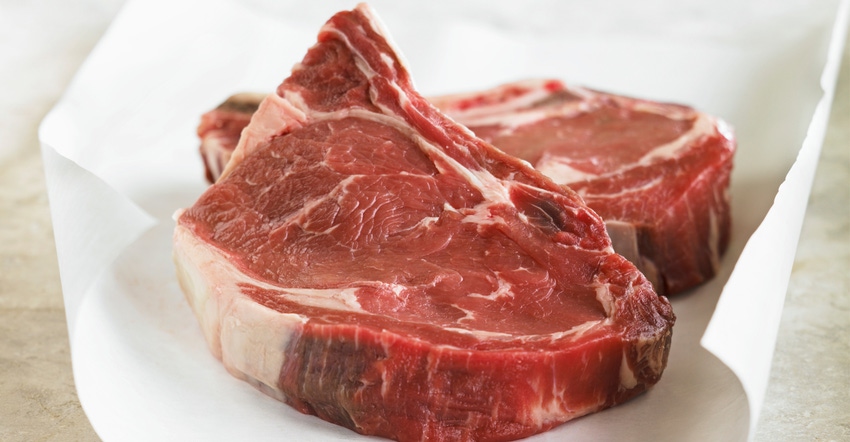Purdue University’s Jayson Lusk spoke at Cattlemen’s College about future trends.

Sure, beef demand is at a 33-year high, according to CattleFax. But that doesn’t mean cattle producers can afford to be complacent in addressing consumer concerns and ignore the rising challenges from the alternative protein sector.
Purdue University food and agriculture economist Jayson Lusk reminds producers that they have a lot of work to keep that demand high for the future. He spoke at the Cattlemen’s College before the Cattle Industry Convention on Aug. 10 in Nashville, Tenn.
Alternative competition
Lusk says that consumers still have questions about sustainability of beef production, a growing interest in alternative proteins, and they’re bombarded by influencers who push vegetarian and vegan lifestyles for one reason or another. Continuing to address these concerns is how beef producers protect the demand growth they saw coming out of the pandemic, and protect against alternative proteins from gaining a toehold.
Lusk says about $21 billion was invested into various alternative protein companies just last year, betting that these companies will pay off in the future.
Investor demands
Environmental sustainability governance — it’s a set of criteria that cattle producers should become familiar with, Lusk says. The conversation around sustainability is not only driven by consumer decisions at the meat counter, but it’s also being led by investment groups.
“A lot of the pressure here is coming from investment groups, asking food manufacturing, food retailing and production companies to adopt what they call ESG — environmental, sustainable and governance criteria — and start adopting metrics around these things,” Lusk says. “And the reason this is important is because of the capital flows coming into agriculture.”
These institutional investors control piles of capital, and they are expecting a report to their investors on the sustainability measures they’re investing that capital in, he adds. Meat packers, retailers, restaurants and others are already trying to figure this out. That’s opportunity for cattle producers, Lusk says.
“It means being progressive and willing to track and share data — maybe in ways we haven’t in the past,” Lusk says.
Points of purchase
The pandemic opened consumers up to new ways to get their food, and Lusk says cattle producers should watch those trends.
“We were on a trend before the pandemic to buy more food outside of grocery stores, e-shopping for food — but the pandemic really put us on a whole new level,” he says. “I was talking to one of the major fast-food chains the other day. They went from about 3% of their sale coming from online orders before the pandemic to today about 11% to 13% on average, which I found quite remarkable.”
Food will bypass the traditional grocery store, and in some small, urban areas, grocery orders are actually being filled out of micro-fulfillment centers, he explains. Not only will that change the future grocery store’s layout, but it also puts a bit of pressure on automation in meatpacking to fill the future needs of those micro-fulfillment centers.
The pandemic also created more consumer interest in direct delivery of food, which may not become a major share of the industry, but it may become a niche market that has room for growth, Lusk adds.
About the Author(s)
You May Also Like





